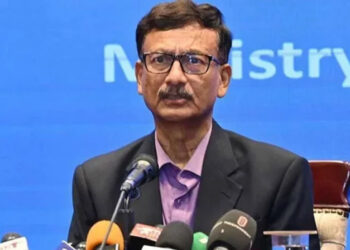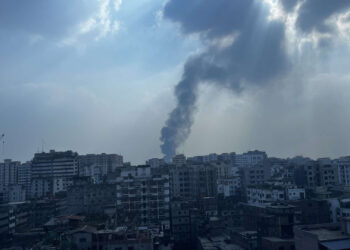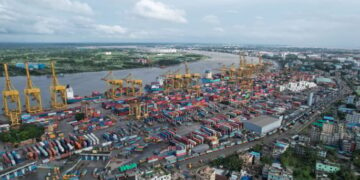The political landscape in Bangladesh has seen significant changes following the resignation of Prime Minister Sheikh Hasina and the fall of the Awami League government in early August 2024. One of the major concerns for the general public has been the impact of these political shifts on inflation, food prices, and the overall cost of living. Despite the transition to an interim government, inflation remains a pressing issue, and ordinary citizens are struggling with the rising cost of basic commodities.
Inflation in the Months Leading Up to the Government’s Fall
According to the Bangladesh Bureau of Statistics (BBS), the overall inflation rate in July 2024 reached a staggering 11.66%, marking the highest rate in the past decade. This spike in inflation was largely driven by food inflation, which hit 14.10% in July. The sharp rise in prices was further exacerbated by widespread protests that began as student-led demonstrations for quota reforms in government jobs but soon escalated into a mass movement. These protests caused disruptions to the country’s supply chain, especially during the period of nationwide curfews, leading to further price hikes in essential commodities.
“The protests and law enforcement actions in July significantly impacted the business environment and the supply of goods, which contributed to the record inflation that month” [3]. As the situation worsened, Sheikh Hasina resigned from office on August 5th, leading to the formation of an interim government by August 8th.
August: The Immediate Aftermath of the Government’s Fall
In the first month following the fall of the Awami League government, the economic data painted a slightly improving picture of inflation, but the reality for everyday consumers remained bleak. As of August 2024, overall inflation had decreased to 10.49% [4]. The Bangladesh Bureau of Statistics (BBS) further confirmed that food inflation had declined from 14.10% in July to 11.36% in August, while non-food inflation also saw a slight reduction, dropping from 9.74% in July to 9.5% in August.
However, despite the declining numbers, ordinary Bangladeshis did not feel the immediate benefits. As Prothom Alo noted, “Ordinary people are not seeing any impact of this decrease on their cost of living. Rather, prices of almost all commodities have risen” [2]. Even as inflation numbers came down on paper, consumers continued to face high prices for basic goods, indicating a lag in the actual market adjustment to the new political and economic climate.
September: Inflation Under the Interim Government
By September 2024, the interim government’s policies began to show some effect. The inflation rate further decreased to 9.92%, according to a report by the Daily Star [1]. Food inflation also declined, with prices growing at a slower rate of 10.4% compared to 11.36% in August. Zahid Hussain, a former lead economist at the World Bank’s Dhaka office, commented on this trend: “The positive news is that inflation has declined for the second consecutive month. The decline primarily reflects lower food inflation in both rural and urban markets” [1].
While this decrease in inflation was a welcome sign, the BBS data highlighted that non-food inflation had only slightly eased to 9.5%, indicating that while food prices were stabilizing, the broader basket of consumer goods remained costly.
Challenges Moving Forward
Despite these early signs of economic stabilization, the reality for most people in Bangladesh remains difficult. The price of essential goods like rice, cooking oil, and vegetables continues to rise, and the impact of inflation on daily expenses is still deeply felt. Furthermore, the interim government has taken steps to address inflationary pressures, such as the Bangladesh Bank’s decision to raise the policy rate by 50 basis points to 9% on August 25th, following a similar hike in May. These measures, aimed at controlling inflation, have made borrowing more expensive and have raised concerns about long-term economic growth.
As Bangladesh navigates this period of political transition, the economic recovery will be a key issue for the new government. Although inflation has declined slightly, the road to stabilizing commodity prices and improving the overall cost of living for the average citizen will require more sustained efforts from policymakers.
Conclusion
The comparison between the month before and after the fall of the Awami League government reveals that, while inflation figures have started to improve, the benefits have yet to fully reach the public. The interim government inherited a challenging economic situation, with inflation reaching record highs in July. While their policies have led to a reduction in inflation rates by September, the cost of basic commodities remains a significant burden for the people of Bangladesh. Further steps will need to be taken to ensure that the country’s economic recovery translates into real improvements in everyday life.
Sources:
Share via:


















